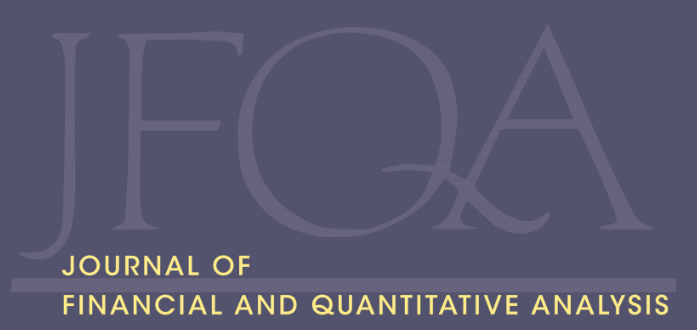Federal ID: 91-6001537
ISSN: 0022-1090 (Print) | 1756-6916 (Online)
JFQA Code Sharing Policy
This policy applies to new submissions from January 1, 2024, onward. Compliance with the policy is voluntary for papers initially submitted prior to that date.
Code Sharing: After a paper containing empirical analyses, simulations, or numerical computations is accepted for publication at the Journal of Financial and Quantitative Analysis (JFQA) the authors are required to provide the source code needed to reproduce from the raw datasets employed any findings reported or referred to in the paper. Authors will be required to post the programs in the JFQA dataverse at the Harvard University Dataverse as supplemental materials before the paper is published online.
Data Sharing: Authors are required to include the raw datasets needed to reproduce the paper’s results, unless they are restricted from doing so because of copyright or confidentiality agreements. If so, authors are instead required to include a pseudo data set containing sufficient observations that all of the programs execute successfully. The intent in this case is to illustrate the format of the files read by the code and so that users can better understand the code.
Implementation and Exceptions: Exceptions to this policy, such as delay in sharing the code, are possible, but must be requested on the initial submission. Decisions on such exception requests will be made by the editor handling the submission. Approved exceptions will be noted in the published paper.
To Post Your Materials
Set up a (free) account in the Harvard dataverse via the Sign Up option on the main menu. Then, making sure you are in the JFQA dataverse, click Add Data, click New Dataset, and then follow the prompts to fill in the necessary metainformation. If you are unable to fully publish the data, contact [email protected]; we may need to change your permission level.
d
Authors should make good faith efforts, including the use of sufficient comment statements within the source code, and the inclusion of a “read me” file containing description of software packages, programming languages and data formats employed, to ensure that their code can be understood by reasonably trained users. If multiple programs are involved the “read me” file should include a “roadmap” describing the order in which programs are to be executed and the purpose of each program or section of code. Authors should anticipate that JFQA personnel or external verification services may be employed to validate the submitted code for randomly selected publications.
Beyond these requirements, authors are not required to provide assistance to users of the code. Those who download the code files must certify that the programs will be used only for academic research. Any other use will require explicit permission from all the authors of the published paper and other originators of the code (if such other originators exist). Academic researchers using any part of the code in their own work are required to acknowledge the origin of the code.
Download this document
